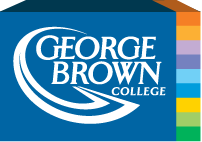About Activation Co-ordinator/gerontology Program in George Brown College
Activation Co-ordinator/Gerontology is a unique diploma program that will teach you the specialized skills required to work with older adults. Over the course of two years, you’ll learn how to design therapeutic programs for older adults that consider the physical, mental and spiritual perspectives of the aging process.
You’ll start by developing strong communication skills – both from a management and interpersonal perspective. This work requires the ability to work with people across different life stages so effective communication skills are essential to the job. You will go on to develop coordinator skills that will prepare you to manage physical, financial and human resources.
You’ll also study the science and theory behind aging. This in-depth look at the biological changes of aging includes an understanding of diseases often related to aging like Alzheimer’s and dementia.
Hands-on learning is a major component of this program. To help you gain confidence as you learn to create specialized therapeutic programs, you’ll get lots of practice both on-site at our 21,000+ square foot Simulation Centre facility and off-site with one of our field placement partners. You’ll also learn proper documentation and Resident Assessment Instrument – Minimum Data Set (RAI-MDS) training.
PROGRAM STANDARDS AND LEARNING OUTCOMES
The graduate has reliably demonstrated the ability to:
- Function effectively as a member of an inter-professional team in the development and provision of health promoting and life enhancing services and programs for older adults.
- Accurately and comprehensively assess and record the ongoing needs of the older adult using a variety of widely used electronic systems.
- Develop, coordinate, deliver and evaluate a variety of services/programs that enhance clients’ level of functioning and quality of life by applying relevant research and theory to practice.
- Apply appropriate health and safety protocols in order to protect the health, safety and well-being of their clients, their co-workers and themselves.
- Communicate effectively using a variety of therapeutic techniques and in adherence with privacy and freedom of information legislation.
- Identify, select and use appropriate professional and community resources to meet the needs of the older adult.
- Ensure programs operate in compliance with relevant policy, legislation and standards of practice for services to older adults in a variety of settings.
- Establish and maintain professional and ethical standards in the field of activation gerontology as set out by relevant professional bodies.
- Promote accessible, inclusive and responsive programs and services by recognizing the diverse needs and experiences of individuals, groups, families and communities.
- Manage physical, financial and human resources in order to effectively coordinate services for older adults.
YOUR CAREER
The increase in the number of older adults has created a growing demand for workers with knowledge and skills specific to the needs of later life.
Graduates are employed as Activation Co-ordinators in:
- day centres
- community centres
- long-term care homes
- retirement homes
- community-based service agencies
As Canada's population continues to age, employment opportunities are growing rapidly.
Academic qualification equivalents
- Have graduated from senior secondary school or equivalent (those applying for a postgraduate program must have graduated from a university or college)
English language requirements (one of the below):
- IELTS : 6.0, minimum 5.5 in each skill band
- TOEFL : 80 (Internet-based) minimum 20 in each skill band
- PTE : 54, overall minimum 50 in each skill band
George Brown College Highlights
| Type of College |
Public |
| Campus Setting |
Urban |
| Location |
Toronto, Ontario, Canada |
| Number of Campuses |
3 + 3 (location/centers) |
| Type of programs |
Certifications, Diploma, Degree, and Continuing Education |
| Number of full-time students |
32,000 + |
| Number of part-time students |
3,000 + |
| %age of International Students |
17% |
| Official Website |
www.georgebrown.ca |
George Brown College The Average Tuition Fees And Other Expenses
| Student Type |
Tuition Fee |
| Canadian students |
2780 - 15310 USD(two semesters) |
| International Students |
11,320 - 23,900 USD(two semesters) |
Tuition fees for some of the popular programs offered by George Brown College are mentioned below
| Course Name |
Tuition Fee(USD) |
| B.Com |
6,052 |
| B.Tech |
7,272 |
| BSN |
5,430 |
| Wireless Network(Postgraduate) |
4,365 |
| Construction Management(Postgraduate) |
6,183 |
| Marketing Management(Postgraduate) |
4,176 |
Residence Fees
Although rents may vary depending on quality and location, most rents listed by the Housing Service are within the following ranges:
| Accommodation Type |
Rent |
| Shared Accommodation |
500 - 700 USD per month |
| One - Bedroom Apartment |
900 - 1,200 USD per month |
| Two - Bedroom Apartment |
1,100 - 1,500 USD per month |
| Three - Bedroom Apartment |
1,300 - 1,800 USD per month |
Meal Plans
The college provide three types of meal plan options its students, the details of which are mentioned below:
| Plan Name |
Cost |
| Annual Swipe & Save Plan |
1700 USD |
| Semester Swipe & Save Plan |
850 USD |
| Swipe & Save Reloadable Card |
400 USD |
